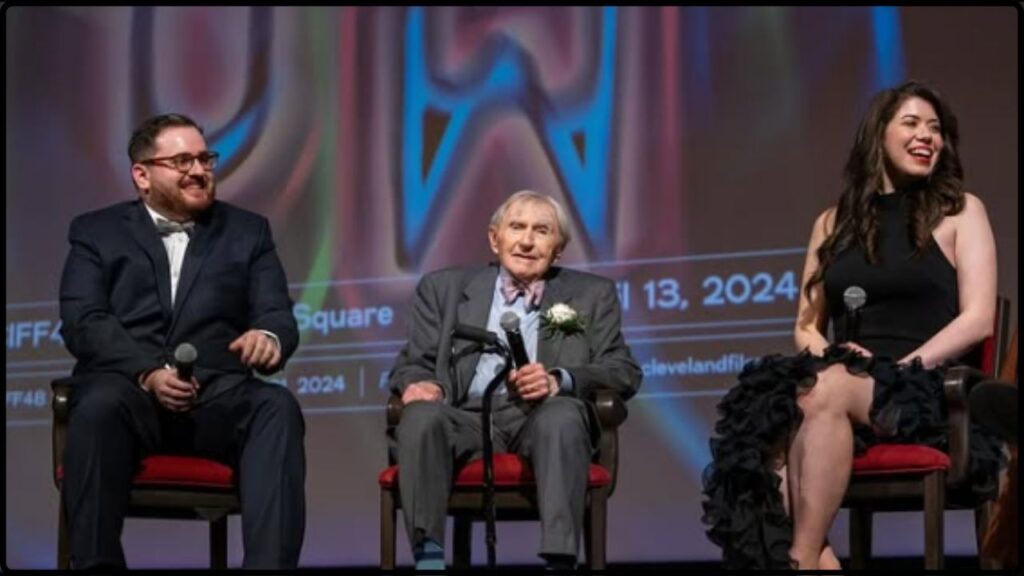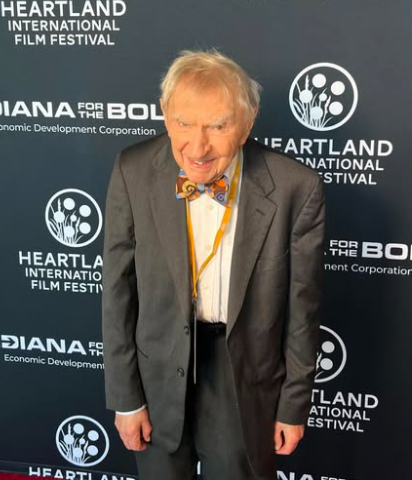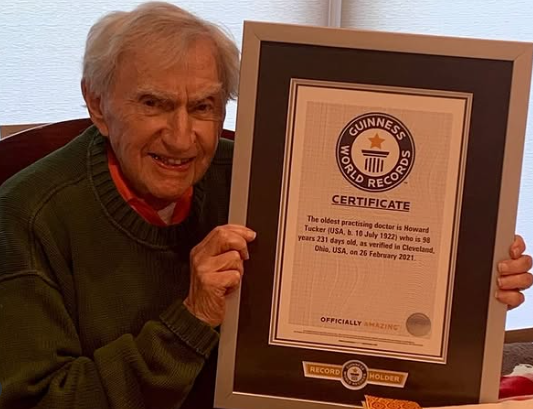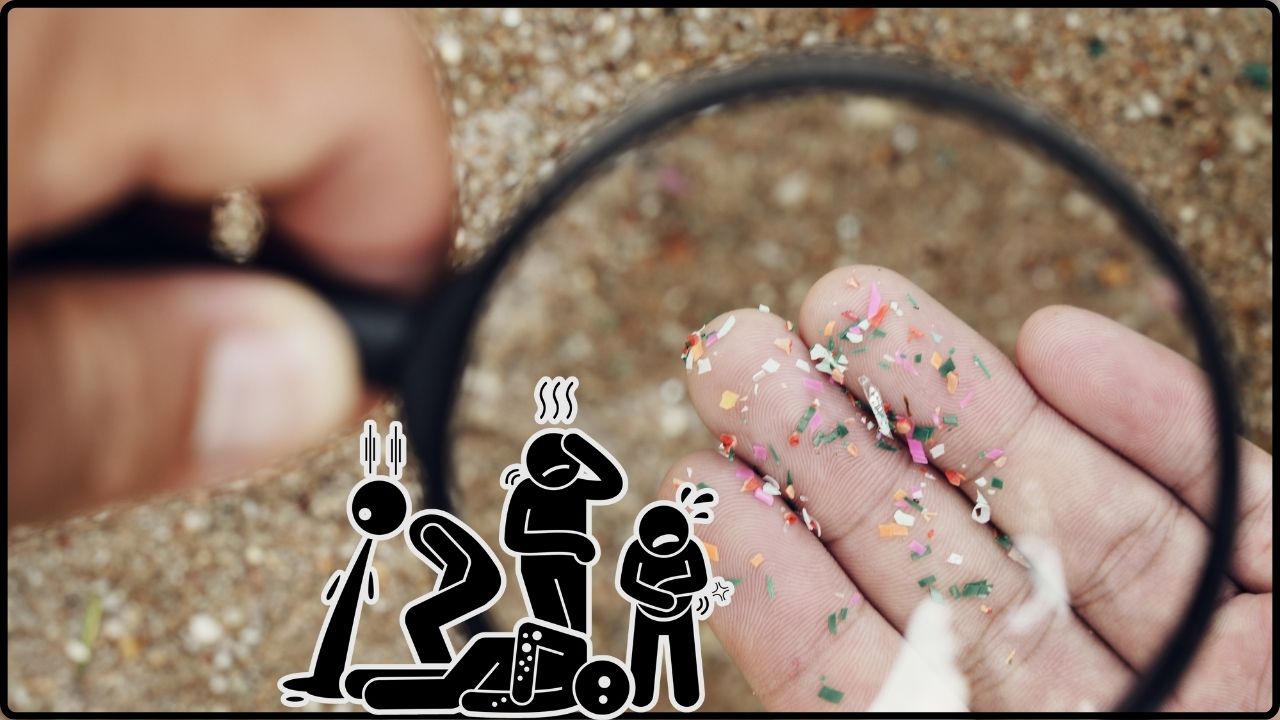This 102-Year-Old Doctor Reveals the Real Longevity Killer: When we think about living to 100—and beyond—most people chalk it up to genetics or diet. They picture strict calorie counting, green smoothies, and good DNA. But what if we’ve been focusing on the wrong things? According to Dr. Howard Tucker, a neurologist who turned 102 and still consults and lectures, the real killer of longevity isn’t your food or your family history. It’s losing your sense of purpose.
Yes, really. This centenarian—who served in World War II, got a law degree at 67, and was named the world’s oldest practicing doctor by Guinness World Records—says that once people stop having a reason to wake up in the morning, their health begins to decline. Purpose, he says, is the most important ingredient to a long, meaningful life. Let’s explore Dr. Tucker’s life, the science backing his claims, and how you can apply his principles no matter your age or profession.
This 102-Year-Old Doctor Reveals the Real Longevity Killer
Dr. Howard Tucker’s story turns modern longevity thinking on its head. It’s not fancy diets or rare genetics that keep us alive and thriving—it’s purpose. When you stay curious, connected, and contributing, your mind and body follow suit. You don’t need to be a doctor or genius to live well into old age. You just need to keep showing up for life—with curiosity, courage, and care. So ask yourself: What’s your reason to wake up tomorrow?

| Topic | Details |
|---|---|
| Main Insight | Lack of purpose is the true longevity killer, not poor diet or bad genes |
| Featured Expert | Dr. Howard Tucker, 102-year-old neurologist |
| Record | Guinness World Record holder: oldest practicing doctor |
| Scientific Backing | Purpose lowers risk of death by 15% (JAMA Network) |
| Lifestyle | Walks daily, eats lightly, stays mentally and socially active |
| Education | Earned a law degree at 67, practiced medicine into his 100s |
| Resources | Guinness World Records, JAMA Network Study, National Institute on Aging |
The Real Longevity Killer: A Life Without Purpose
Dr. Tucker has seen thousands of patients across his decades-long career. And one consistent pattern he noticed? People who remained mentally and socially active—those who had something to live for—tended to outlive and out-thrive everyone else.
“I’ve seen people physically fit in their 60s decline rapidly after retirement,” he explained. “Once they stopped engaging their minds and contributing, their health followed suit.”
This isn’t just an opinion—it’s science-backed. A 2019 study from JAMA Network Open found that people with a strong life purpose had a 15% lower risk of death, independent of other health factors. That’s a bigger impact than quitting smoking or lowering blood pressure.
The National Institute on Aging also links purpose-driven living to better cardiovascular health, lower risk of Alzheimer’s disease, and even reduced inflammation.
How Purpose Impacts Your Body and Mind?
So how exactly does having a purpose help your body function better?
- Mental stimulation keeps neurons firing, reducing risk of dementia.
- Social interaction lowers stress and boosts immune response.
- Daily motivation encourages physical activity and routine.
- Hope and fulfillment reduce chronic stress hormones like cortisol.
In short, when you have something to live for, your body gives you the energy to pursue it.

A Step-by-Step Guide: This 102-Year-Old Doctor Reveals the Real Longevity Killer
You don’t have to be a doctor or earn advanced degrees to apply Dr. Tucker’s principles. Here’s how you can start today:
Step 1: Define Your Personal “Why”
What drives you? It could be your work, your children, creative projects, a cause you care about, or even a hobby. Your “why” doesn’t have to be grand—it just has to matter to you.
Ask yourself: What makes me excited to get up in the morning?
Step 2: Stay Curious and Keep Learning
Dr. Tucker earned a law degree at 67 “just to keep his brain active.” Lifelong learning builds neural pathways that keep your mind sharp.
Try:
- Online platforms like Coursera or edX
- Reading a book per month
- Learning a musical instrument
- Joining local discussion groups or classes
Step 3: Move Every Day—No Gym Needed
You don’t need to run marathons or lift heavy weights. Dr. Tucker walks daily, snowshoes in the winter, and uses a treadmill when indoors. Simple movement, done consistently, adds years to your life.
According to Harvard Health, just 15 minutes of walking a day can reduce early death risk by over 25%.
Step 4: Eat Smart and Simple
Dr. Tucker’s diet is far from extreme. He eats fruit for breakfast, often skips lunch, and enjoys fish with vegetables for dinner. He never smoked and drinks occasionally—usually a martini, not a green juice.
Focus on:
- Whole foods over processed
- Portion control
- Occasional indulgence, without guilt
Step 5: Stay Connected
Loneliness is one of the biggest threats to health. In fact, the Harvard Study of Adult Development found that close relationships are the strongest predictors of long-term happiness and health.
Make an effort to:
- Call or visit friends and family weekly
- Join a club, faith group, or local organization
- Volunteer or mentor someone younger

Real-Life Examples of Purpose-Driven Longevity
Jeanne Calment – 122 Years Old
She sold art and met Vincent Van Gogh. Even in her 100s, she practiced fencing and had a zest for life.
Blue Zones Communities – Average Lifespan: 90+
In areas like Okinawa, Japan and Nicoya, Costa Rica, residents maintain strong social ties, remain physically active, and contribute to their communities well into old age.
Dr. Leila Denmark – Practiced Pediatrics Until 103
She loved her work so much that she only retired because she could no longer hear well enough with a stethoscope.
These examples highlight a key truth: retirement isn’t the enemy—disengagement is.
Longevity Myths Debunked
Let’s clear up some common misconceptions:
Myth 1: “It’s all in the genes.”
Fact: Genetics account for only about 20–30% of your lifespan, according to the National Institute on Aging. Lifestyle plays the bigger role.
Myth 2: “Retirement is freedom.”
Fact: Retirement without purpose leads to mental and physical decline. Many retirees become isolated, inactive, and depressed.
Myth 3: “You need a strict diet to live long.”
Fact: Balance matters more than restriction. Dr. Tucker enjoys simple meals and an occasional cocktail, without guilt or obsession.
Interactive Checklist: Are You Living With Purpose?
Use this checklist to evaluate your current lifestyle:
| Question | Yes | No |
|---|---|---|
| Do I have a reason to get up in the morning? | ☐ | ☐ |
| Am I mentally stimulated each day? | ☐ | ☐ |
| Do I engage in some form of physical activity daily? | ☐ | ☐ |
| Do I maintain regular contact with friends/family? | ☐ | ☐ |
| Do I contribute to someone or something outside myself? | ☐ | ☐ |
Score 4 or 5 “Yes” answers? You’re on track. Less than 3? Time to reconsider your daily habits.
What Professionals Can Learn from Dr. Tucker
Whether you’re 30 or 70, your career is not just a paycheck—it’s part of your identity and purpose. Here’s how to prepare for longevity in your personal and professional life:
- Start planning a “Second Act” now—consulting, mentoring, volunteering.
- Avoid the “retire and relax” trap. Structure your days with goals.
- Focus on mental engagement as much as financial security.
Your job may end—but your purpose shouldn’t.
Expert Opinions on Purpose and Longevity
Dr. Patricia Boyle, a neuropsychologist at Rush University, says, “Purpose in life is associated with better cognitive functioning and lower risk of Alzheimer’s disease.”
Dan Buettner, National Geographic explorer and author of Blue Zones, states, “People who feel useful live longer—science has known this for decades.”
And Dr. Tucker? He sums it up simply:
“You don’t retire from life. You only retire from your job.”
This Shocking New Theory of Life Doesn’t Involve Monkeys or Dolphins—And It’s Blowing Minds
Not Gold, Not Platinum—This Man’s Mysterious Rock Was Worth More Than Both and Came from Space
Neither Glitch Nor Myth: The Strange Case of Vostok Island’s Disappearance on Google Maps











